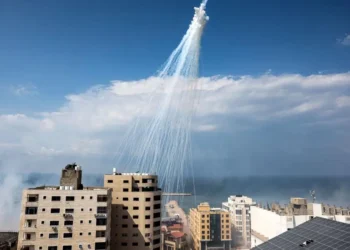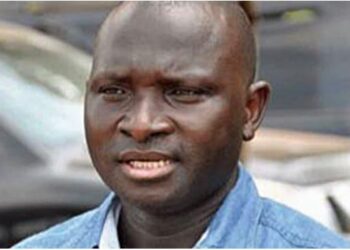Human Lives Human Rights: The United Nations says it has received “credible allegations” of the extrajudicial killings of more than 100 former Afghan National Security Forces and other individuals linked to the former Afghan government, most of them at the hands of the ruling Taliban.
The Taliban seized Afghanistan in a swift military operation in mid-August amid a chaotic withdrawal of US-led foreign forces. At least 72 of the more than 100 alleged killings were attributed to the Taliban, UN High Commissioner for Human Rights Nada al-Nashif said in a speech to the Human Rights Council.
In several cases, “the bodies were publicly displayed,” Al-Nashif added. “This has exacerbated fear among this sizeable category of the population.”
Moreover, Al-Nashif said at least 50 suspected members of a local affiliate of ISIL (ISIS) known as ISIS-Khorasan Province, ISKP (ISIS-K)- an ideological foe of the Taliban – died by hanging and beheading in Nangarhar province alone over the same period.
She described Taliban rule as being marked by extrajudicial killings across the country and restrictions on women’s and girls’ basic rights.
A Taliban decree barred forced marriages but failed to refer to women’s and girls’ rights to education, work and their freedom of movement and to participate in public life, she said.
Families face “severe poverty and hunger” amid reports of child labor, early marriages and “even the sale of children”, Al-Nashif said.
The UN says more than 23 million Afghans – more than half the population – will face an “acute” food shortage in the coming months, forcing millions to choose between migration and starvation.
According to the latest surveys of the UN’s World Food Programme, 98 percent of Afghans are not consuming enough food.
‘A Litany of Abuses’
In her update, Al-Nashif said at least eight Afghan activists and two journalists have been killed since August, while the UN has also documented 59 illegal detentions.
“The safety of Afghan judges, prosecutors, and lawyers – particularly women legal professionals – is a matter for particular alarm”, she added.
Afghanistan’s envoy from the former government accused the Taliban of committing a wide range of abuses, including targeted killings and enforced disappearances.
“With the military takeover of Kabul by the Taliban, not only we see a total reversal of two decades of advances … but the group is also committing a litany of abuses with full impunity which in many cases is going unreported and undocumented,” Nasir Ahmad Andisha said.
The comments came after other nations harshly condemned the Taliban following a Human Rights Watch (HRW) report last December documenting 47 summary executions.
The killings involved former members of the Afghan National Security Forces, other military personnel, police and intelligence agents who “surrendered to or were captured by Taliban forces” from mid-August to October, the report said.
Taliban spokesman Qari Sayed Khosti flatly rejected the HRW report and other claims about extrajudicial killings as “not based on evidences.”
He said there were some cases of former members of the now-defunct Afghan National Defence and Security Forces who had been killed, but that was “because of personal rivalries and enmities.”
However, the HRW says the report is based on a total of 67 interviews, including 40 in-person interviews with witnesses, relatives and friends of victims, and Taliban fighters. In some cases, families report stories of people who simply disappeared.
The findings of the investigation would make a mockery of the Taliban’s previous claims to the international community that it would lead a more inclusive government than it did two decades ago. Its leaders had promised a reprieve for those who collaborated with US forces during the American presence in the country.
The report focused on Ghazni, Helmand, Kandahar, and Kunduz provinces, but HRW said “the cases reflected a broader pattern of abuses reported in Khost, Paktiya, Paktika, and other provinces.”
A Taliban deputy spokesman rejected the HRW report, saying that the Taliban established a general amnesty on their first day of power in Afghanistan. “Based on that all military and non-military personnel of the former government were forgiven and told they could live normally in Afghanistan, that no one could harm them,” Bilal Karimi told CNN.
Bilal did acknowledge that there were events when “some former forces were harmed,” but not as many as reported, adding that any “limited incidents” in which security forces were hurt were “due to personal enmity,” rather than Taliban policy.
‘More than 100 killed or forcibly disappeared’
HRW’s research indicated that Taliban forces killed or forcibly disappeared more than 100 former security forces members in just these four provinces in the three months since their takeover of the capital Kabul, on August 15.
HRW researchers added, “They have also targeted family members of former security force members.”
A man from Kandahar described to HRW what happened when the Taliban knocked on his door searching for his brother, a former member of the ANSF.
“There was a knock on the door. The [Taliban] asked: ‘Is [your brother] home?’ I said no. ‘Do not be scared, tell him, we want to talk to him.’ I said no, he is not home. A couple of days later, they took my brother from the street. We looked everywhere. We went to the Taliban, who denied involvement. Two days later we found his body.”
“Summary killings and enforced disappearances have taken place despite the Taliban’s announced amnesty for former government civilian and military officials and reassurances from the Taliban leadership that they would hold their forces accountable for violations of the amnesty order,” HRW says.
One Taliban fighter described a former prison official who was allegedly executed after being called back to work in August.
“The commanders called him back to the job after a few days [after taking control of Kunduz]. They said, ‘Your job is here, you know this job.’ The prison has three gates. [‘Muhammad’] crossed the first gate. He was shot dead between second and the third gate.”
“In the weeks before the Taliban overran Kabul, revenge killings, including the targeting of government officials, were already on the increase in major cities and along key highways,” HRW says, adding “The Taliban, through their intelligence operations and access to employment records that the former government left behind, have identified new targets for arrest and execution.”
HRW alleges information that was collected as part of a so-called “amnesty program” that would guarantee the safety of surrendering ANSF forces was used “to detain and summarily execute or forcibly disappear individuals within days of their registration, leaving their bodies for their relatives or communities to find.”
HRW says “many Afghans interviewed expressed fear that if they register with the Taliban to receive the amnesty letter, they might be identified or recognized and face violent retaliation. At the same time, the Taliban have also searched for and detained people who failed to register.”
The report alleges the Taliban have also searched for known former security force members, “often threatening and abusing family members to reveal the whereabouts of those in hiding,” adding: “Some of those eventually apprehended have been executed or taken into custody without acknowledgment of their detention or their location, the crime of enforced disappearance.”
HRW says while Taliban officials have repeatedly denied their forces have carried out killings and disappearances, “Increasing evidence suggests that summary executions and disappearances, among other abuses, are being carried out by senior Taliban leadership at the district or provincial level.”
Researchers say on September 21 the Taliban announced the establishment of a commission to investigate reports of human rights abuses, corruption, theft and other crimes, but “as of November 22, the commission had not announced any investigations into any reported killings, although it did report on the arrest of several Taliban members for stealing and the dismissal of others for corruption.”
Concern for minorities
HRW’s findings follow a number of reports of violence in the country since the last Western forces left. Taliban troops are alleged to have unlawfully killed 13 ethnic Hazaras — including nine surrendering former government soldiers and a 17-year-old girl — in Afghanistan’s Daykundi province on August 30, a separate investigation by Amnesty International found in October.
Since the US withdrawal from Afghanistan and subsequent Taliban takeover there has been concern that long-persecuted ethnic and religious minorities, such as the minority Shia Hazara ethnic group, would be targeted as they were under previous Taliban rule.
In September, the sister of a pregnant policewoman told CNN her sibling had been killed by Taliban forces.
Concerns are growing that Afghanistan will become increasingly isolated from the world, and continue to strip away the rights of women, religious minorities, LGBTQ people and former officials.
When a group of women protested the announcement of the all-male government in Kabul in September, Taliban fighters beat them with whips and sticks. Women have most recently been barred from appearing in television dramas under the Taliban’s new media restrictions.
On October 20, Russia hosted a high-ranking Taliban negotiating team attended by representatives from China, Pakistan, India, Iran and the Central Asian states of Kazakhstan, Kyrgyzstan, Tajikistan, Turkmenistan and Uzbekistan.
Russian President Vladimir Putin said Moscow was considering removing the Taliban from its list of extremist organizations as it expands engagement with the new rulers in Kabul.
“We note their efforts to stabilise the military and political situation and set up work of the state apparatus,” Russian foreign minister Sergei Lavrov said. “A new administration is in power now,” he added.
At the conference, the Taliban were recognized as an “effort” and a “new reality” for their rise to power, although the Taliban’s “Islamic Emirate” has not yet been recognized.
A delegation led by Taliban Foreign Minister Amir Khan Muttaqi met with officials from other countries. The delegation visited Turkey on October 14th. The delegation also began a three-day visit to Pakistan on November 11th, discussing several issues, including trade and border crossings.
Recognizing the Taliban and engaging with it are two different things, said Turkish Foreign Minister Mevlüt Çavuşoğlu. The main issue is the need for an inclusive government in Afghanistan.
Government recognition is both important and insignificant in influencing political outcomes, as countries are free to choose whatever government they want under traditional international law, such as republics, emirates, monarchies, federal governments, military dictatorships, or liberal democracies.
As can be seen, the Taliban is entering into relations with other countries, despite all the concerns about democracy, women’s rights and security.
Surrealism beyond the law
Beyond international law, diplomacy leads to relatively surreal situations. Palestine and Israel are two examples that come to mind. On 29 November 2012, the U.N. General Assembly passed a resolution recognizing Palestine as a “non-member observer state,” to serve a Permanent Observer States on 29 November 2012.
However, reality is a reality. Israel and Palestine are countries with territories, populations and governments that have diplomatic relations with other countries. The disputed area does not change the fact that being a state means controlling a particular territory.
Even if the Taliban are not recognized by any government, their future as a country depends on diplomacy and control of Afghanistan. Only time will tell whether the Taliban can be recognized by the world by trying to paint a new image of the Taliban that is safe and stable and respects women’s rights.


















